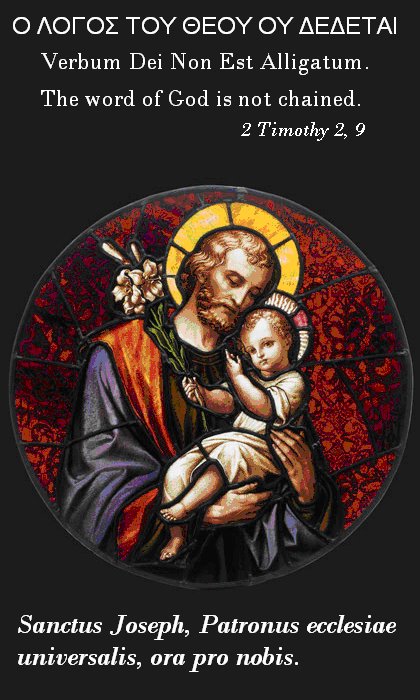What began as a Lenten project last year ended up extending into the late summer, but in August 2008 I finished my translation from the French of Georges Bernanos' Dialogues des Carmelites. Bernanos is a French Catholic author who died in the 40's, an author Pope Benedict has praised, and the Dialogues is probably his most famous work. A French composer whose name escapes me at the moment turned it into an opera that has been performed around the world. I have permission from the copyright holders in Paris to seek a publisher for my translation, but I've not had much luck so far (Ignatius Press wasn't interested; I'm still waiting for a definite answer from Angelus Press). I don't think I'll be violating any copyright laws if I publish a small excerpt here.
First, a bit of background. The play focuses on a Carmelite convent near Paris at the outbreak of the French Revolution. As the new regime comes down progressively harder on the religious, Our Lord's Agony in the Garden keeps resounding as a kind of leitmotif. One example: the main character, Blanche de la Force, a young daughter of the nobility who struggles with a terrible weakness in her emotional makeup, takes the name of Sister Blanche of the Agony of Christ.
In the following scene, the priest who serves the nuns (referred to only as the Aumonier in the French), and indeed all priests, have been declared outlaws and forbidden on penalty of death from exercising their priestly functions. He comes in disguise to one of the buildings on the grounds of the convent to celebrate Mass with the sisters and a few of the local faithful.
SCENE 7
We are at the Good Friday service, held in secret in a place on the grounds of the convent. A few faithful have gathered. It is night. Some men are on look-out. There are women and children present. The religious arrive without a sound. One of them prepares the vestments. The priest has not yet arrived. Outside, we hear one or two signal cries. The priest comes in. The children kiss his hands.
Chaplain: When I left you the first time, I hoped to see you again often. But the circumstances have been very far from what I had foreseen. I can say that they make my ministry more difficult with each passing day. From now on, each of our meetings will happen according to the good pleasure of God, and we will be obliged to thank Him for them as for a miracle. What do you expect? In less somber times, homage to His Majesty easily takes on the character of a simple ceremonial, too much like what one observes in honor of the kings of this world. I do not say that God does not accept homage of this sort, even though the spirit which inspires it is rather of the Old Testament than of the New. But it happens that He grows tired of it, forgive me this expression. The Lord lived and still lives among us as a poor man; the moment always comes when He decides to make us poor like Him, so that He might be received and honored by the poor, according to the manner of the poor, and so to find again what He knew long ago so many times on the roads of Galilee; the hospitality of the destitute, their simple welcome. He wished to live among the poor; He also wished to die with them. For it was not as a Count at the head of the men of his household that He walked towards death, that is, towards Jerusalem, the place of His sacrifice, in those sinister days that preceded Easter. It was among poor people who, very far from dreaming of defying anyone, made themselves small, so as to pass unnoticed for as long as possible … Let us now also make ourselves small, not, like them, in order to escape death, but in order to suffer it, if need be, as He Himself suffered it, for He was truly, as Holy Scripture says, the lamb that was led to slaughter. We are going to proceed now with the adoration of the Cross.
The priest departs, after having promised the nuns that he would return on Easter day.
Tuesday, March 31, 2009
Subscribe to:
Post Comments (Atom)

The composer of the opera 'Dialog of the Carmelites' is Francis Poulenc.
ReplyDelete